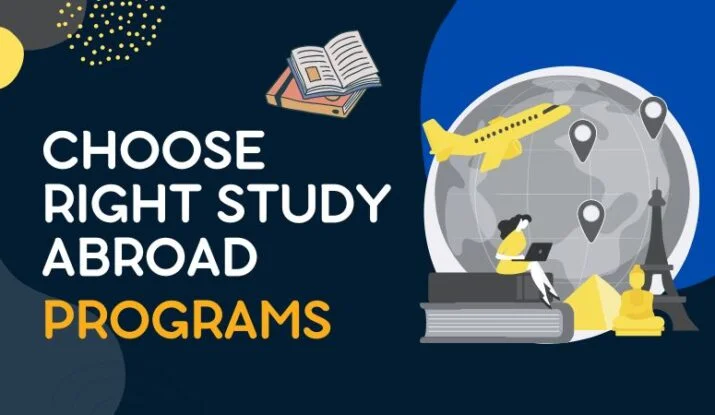Saving Strategies: Start Now for Your Future Study Abroad Adventure

How to Save For Your Study Abroad Adventure
Studying abroad is an excellent opportunity to see and experience other parts of the world on a deeper level than on just your run-of-the-mill vacation. It also looks great on your resume and allows you to make friends across cultural boundaries. While the benefits of studying abroad are endless, it can also be a significant financial undertaking, especially if you need more preparation.
Before you apply for your dream study abroad program, consider these essential factors and skill sets so you can have the best possible experience (and money for studying abroad) without breaking the bank. A well-informed traveller is the best kind of traveller!
Four ways to save money for study abroad
1. Focus on Self-Reliance
It is a query for everyone, “How much does it cost to study abroad?” The answer is: it always depends, but usually quite a bit. In college, it’s easy to fall back on readily-available services like takeout food, sales (any kind), and economy stores to meet your everyday chores. Still, these habits can land you in a mess of financial stress while living abroad. Let’s face it. Everyone loves a good steal. We all need a little retail therapy sometimes, but having basic self-reliance skills can help you maintain a study abroad budget now and when travelling (side note: everyone needs money to study overseas).
Here are some self-reliance strategies to consider:
Learn to cook: It’s always cheaper (and healthier) to eat from fresh ingredients you cook yourself than to shell out for someone else’s labour every meal. It will come in handy (when you need money for study abroad) if you have access to something as simple as a hotplate and a pan. Eating out at restaurants in foreign countries can get expensive, especially in major cities than smaller communities. Help your study abroad budget by making an in-home date night and cooking dinner with friends!
Learn to sew: You shouldn’t have to re-up whenever you get an unfashionable tear in your jeans. It can also break you of your economy store habit, which is essential if there’s no such thing as a second-hand shop where you’re travelling. It is a great little skill to keep in the back pocket of your best travel pants (not to mention a travel sewing kit could fit there easily, too)!
Learn to navigate: Knowing how to read a map to determine which way is north will save you time (and pricey cab rides) in foreign countries. It goes double for adventurous outings. We know map reading is regarded as a dying art, but knowing where you’re headed on a random adventure can save you in a pinch.
Trust me; these are just some ways to study abroad for cheap(er). You’ll think of plenty more.
2. Make a Budget Plan Carefully
It can’t be avoided – travelling and studying abroad will always be unexpected costs. That being said, you can certainly educate yourself ahead of time to minimize the number of things that qualify as “unexpected” and to save money for study abroad. Decide as many costs as possible for your study abroad budget and start planning early! You’ll get better deals on airfare if you jump at low rates when they suddenly appear. The top secret for how to save money for study abroad? Be diligent in seeking deals!
You’ll also be able to correctly budget for incidental costs like foreign transit, average food prices, and the most efficient itinerary. Working out these nuances beforehand will make your life much easier regarding money for studying abroad and when it’s time to travel.
Before choosing a study abroad program, carefully examine each program provider and schedule to determine whether it is affordable. Know what is included and what is not. You’ll be happy to hear: budget-friendly study abroad programs DO exist. Believe it or not, choosing more affordable study-abroad options is possible too.
3. Understand the Cost of Your Study Abroad City & Country
It’s important to remember that you’re entering an entirely different culture when you travel abroad. Many elements of behaviour differ from home whenever you visit a foreign country, many of which can relate directly to money. A great example is that many countries have a culture of bartering and bargaining at markets. People are not used to this in the United States. Still, in many places, it’s customary for shopkeepers to start with a high price with the expectation that the shopper will bargain it down to something more reasonable.
You may pay far above the reasonable price if you must be made aware that you’re in a bartering culture. It is also true for other services like taxis. Rather than having a meter, taxi drivers in some places negotiate a price before the trip, again expecting to have their first offer rejected.
Look out for matters related to how people handle money in other countries:
Is there a culture of gratuity in your destination? In other words, do people tip in this country, and if so, where and how much? Americans list between 15 to 20 per cent for food servers, bartenders, spa workers, and taxi drivers; however, in Australia, food servers do not rely on tips for their income, and tipping at restaurants is not customary.
What is the exchange rate in your destination? Your dollar may be worth more or less depending on where you go, so remember to save according to what you’ll need in your destination city. It can get complicated. For instance, if you’re studying abroad in Europe, you’ll need a bit more to get by in London, England, where every Pound Sterling is worth $1.66. However, if you study in St. Petersburg, Russia, every dollar gets you over 33 Rubles. Because of the power of exchange rates, you should consider travelling to places that bring you more for your dollar — if you’re trying to save, that is!
4. Be Smart About Your Savings Strategy
The best answer to “how to get money for study abroad” is a good savings strategy (and a study abroad budget). It will ensure you have enough money in your bank account when you board the plane for your study abroad adventure. It holds for any significant investment you’ll ever plan. Sit down with someone at your bank to discuss your options for intelligent, secure savings packages. Stay calm in credit card debt.
Make a habit of socking away a certain amount of your income every week, preferably into an account you don’t allow yourself to touch. Cut excesses and back on some of your more common luxuries (like going out with friends every weekend). If you don’t have the money to study abroad or travel right now, you will only have money later (when you need a study abroad budget) if you change how you spend today.
Overstate those unexpected costs and remove the (nasty) surprise factor!
You now know the best ways to save money for studying abroad
How comfortable and valuable your study abroad experience is will depend significantly on how well you plan your adventure ahead of time.


